- Home
- Franz Kafka
The Great Wall of China
The Great Wall of China Read online
PENGUIN BOOKS
The Great Wall of China and Other Short Works
Franz Kafka was born of Jewish parents in Prague in 1883. The family spoke both Czech and German; Franz was sent to German-language schools and to the German University, from which he received his doctorate in law in 1906. He then worked for most of his life as a respected official of a state insurance company (first under the Austro-Hungarian Empire, then under the new Republic of Czechoslovakia). Literature, of which he said that he ‘consisted’, had to be pursued on the side. His emotional life was dominated by his relationships with his father, a man of overbearing character, and with a series of women: Felice Bauer from Berlin, to whom he was twice engaged; his Czech translator, Milena Jesenská-Pollak, to whom he became attached in 1920; and Dora Diamant, a young Jewish woman from Poland in whom he found a devoted companion during the last year of his life. Meanwhile, his writing had taken a new turn in 1917 with the outbreak of the tubercular illness from which he was to die in 1924. Only a small number of Kafka’s stories were published during his lifetime, and these are published in Penguin as Metamorphosis and Other Stories. He asked his friend, Max Brod, to see that all the writings he left should be destroyed. Brod felt unable to comply and undertook their publication instead, beginning with the three unfinished novels, The Trial (1925), The Castle (1926) and Amerika (1927). Other shorter works appeared posthumously in a more sporadic fashion, and a representative selection of them is collected in this volume.
Malcolm Pasley was born in 1926 and was educated at Sherborne School and Trinity College, Oxford. He is an Emeritus Fellow of Magdalen College, Oxford, a Fellow of the British Academy and a member of the German Academy for Language and Literature. As one of the editors of the Critical Kafka Edition, he was responsible for The Castle (1982), The Trial (1990) and Posthumous Writings and Fragments: Volume I (1993). His recent publications on Kafka include a collection of essays, ‘The script is unalterable…’ (1995).
FRANZ KAFKA
THE GREAT WALL OF CHINA
AND OTHER SHORT WORKS
TRANSLATED FROM THE GERMAN AND EDITED BY
MALCOLM PASLEY
PENGUIN BOOKS
PENGUIN BOOKS
Published by the Penguin Group
Penguin Books Ltd, 80 Strand, London WC2R 0RL, England
Penguin Putnam Inc., 375 Hudson Street, New York, New York 10014, USA
Penguin Books Australia Ltd, 250 Camberwell Road, Camberwell, Victoria 3124, Australia
Penguin Books Canada Ltd, 10 Alcorn Avenue, Toronto, Ontario, Canada M4V 3B2
Penguin Books India (P) Ltd, 11 Community Centre, Panchsheel Park, New Delhi – 110 017, India
Penguin Books (NZ) Ltd, Cnr Rosedale and Airborne Roads, Albany, Auckland, New Zealand
Penguin Books (South Africa) (Pty) Ltd, 24 Sturdee Avenue, Rosebank 2196, South Africa
Penguin Books Ltd, Registered Offices: 80 Strand, London WC2R 0RL, England
www.penguin.com
This translation first published under the title
Shorter Works, Volume I, by Martin Secker & Warburg 1973
Published in Penguin Books 1991
Reprinted in Penguin Classics 2002
5
Translation copyright © Malcolm Pasley, 1973
All rights reserved
Except in the United States of America, this book is sold subject
to the condition that it shall not, by way of trade or otherwise, be lent,
re-sold, hired out, or otherwise circulated without the publisher’s
prior consent in any form of binding or cover other than that in
which it is published and without a similar condition including this
condition being imposed on the subsequent purchaser
CONTENTS
Editor’s Preface
Notes
The Village Schoolmaster
Blumfeld, an Elderly Bachelor
The Warden of the Tomb
The Bridge
The Hunter Gracchus: Four Fragments
The Proclamation
The Great Wall of China
The Knock at the Manor Gate
My Neighbour
A Crossbreed
New Lamps
The Collected Aphorisms
An Everyday Occurrence
The Truth about Sancho Panza
The Silence of the Sirens
Prometheus
He: Aphorisms from the 1920 Diary
The City Coat of Arms
Poseidon
Fellowship
At Night
The Refusal
The Problem of Our Laws
The Conscription of Troops
The Test
The Vulture
The Helmsman
The Top
A Little Fable
Homecoming
The Departure
Advocates
Investigations of a Dog
The Married Couple
A Comment
On Parables
The Burrow
EDITOR’S PREFACE
THE present volume contains the major short works left by Kafka, and it presents them for the first time in the order of their composition. The sequence and dating of the works is particularly important, because of the very close links between his life and his writing. So it may be useful to mention here some of the relevant biographical facts, although of course these cannot by themselves supply an interpretation of the stories. Kafka’s work is full of autobiographical material, but equally it is more than just a kind of veiled autobiography. He did indeed say that some of his pieces were ‘really no more than jottings or doodlings of an entirely private nature’, but his chief aim in turning his life into literature was to go beyond the merely personal, to bring out the fundamental – mythical – patterns of human existence, and so to ‘raise the world into the pure, the true, the immutable’ (diary of 25 September 1917).
Franz Kafka was born in 1883 of Bohemian-Jewish parents, and spent most of his life in Prague, that city of mixed tongues and national conflict, dominated by a magnificent castle that no longer contained a king. His experience of Prague always enters into the depiction of cities in his works, whether it is the accursed city of Babylon – to which he lends the Prague coat of arms with its clenched fist (‘The City Coat of Arms’) – or the Imperial City of Peking (‘The Great Wall of China’). In Prague he was well acquainted with the business world – his father ran a wholesale firm dealing in fashion accessories in the Old Town Square – and with the administrative and legal world also: after studying law at the Charles University he served from 1908 to 1922 in the ‘Workers’ Accident Insurance Office for the Kingdom of Bohemia’, as a conscientious and respected official of what he privately called ‘a dark nest of bureaucrats’. The operations of commerce, law, and public administration find their way into many of his stories, either as real background (‘My Neighbour’, ‘The Married Couple’) or as a kind of metaphorical framework (‘The Refusal’, ‘The Problem of Our Laws’, ‘Advocates’), and the semi-ironical use of legal and official jargon becomes an integral part of his literary style. Most important of all, Prague was the city where Western European Jewish intellectuals, like Kafka and almost all his friends, had become most painfully aware of their own rootlessness. Largely emancipated from the faith of their fathers, they were for the most part incompletely and unhappily assimilated to the German culture which held sway over a Slav population. In these circumstances many of them, such as Kafka’s friend and literary champion Max Brod, become ardent Zionists. The idea of a return home to Palestine came to attract Kafka as well in his later years, but this solution always seemed to him rather too particular, and in a
ny case a little too good to be true, like a fairy tale. He first became really aware of his own Jewishness when he got to know a group of Yiddish actors from Poland who were visiting Prague in 1911 (this decisive experience is echoed in the episode of the seven ‘dog musicians’ in ‘Investigations of a Dog’, which of all the stories in this volume comes closest to autobiography); he became conscious of the mysterious power that still seemed to reside in the genuine Jewish communities of Eastern Europe. It appears from his diaries and letters that he found relatively primitive and superstitious communities at once sympathetic, comic, and strangely awe-inspiring, as if for all their limitations they were in possession of a secret from which he was excluded; this applied also to the village communities of the Czech provinces, whose contrast to the intellectual Babel of Prague struck him so forcibly on his journeys from the city (cf. ‘The Village Schoolmaster’).
Kafka’s father, Hermann, was a powerful and self-assertive man who filled him with a strong sense of inadequacy and guilt. Franz felt that marriage and family life had been somehow annexed by his father, and that he could not compete in this sphere. Thus he remained a bachelor, and this was one of the ways in which he knew the deep sense of isolation and estrangement to which his early works testify (‘Blumfeld, an Elderly Bachelor’). The guilt-feelings associated with his failure to marry reached their peak in 1914, at the time of his first and more short-lived engagement to Felice Bauer, a thoroughly sensible middle-class girl from Berlin whose very self-possession attracted him: this was the period of The Trial and ‘In the Penal Colony’. More obviously than in the present volume, Kafka’s unhappy relationship with his father is reflected in earlier stories such as ‘The Judgement’ and ‘The Transformation’, which belong – like ‘In the Penal Colony’ – to that small corpus of work which he regarded as successful and published in his own lifetime. By the end of 1916, when he took a little house of his own – almost a monastic cell – in the Alchimistengasse on the slopes of the castle hill, he had succeeded in putting these oppressive private difficulties to some extent in perspective, and had begun to acquire a certain precarious confidence in his lonely mission as a writer. He regarded this mission, however uncertain it still remained, increasingly in spiritual and indeed in religious terms (cf. ‘The Collected Aphorisms’). The outbreak of his turberculosis in 1917 allowed him to concentrate on his meditations and his writing more fully; it actually afforded him a welcome release from the long and painful relationship with Felice, and he was also granted generous periods of sick-leave by his insurance office until he was finally pensioned off five years later.
It may seem strange to suggest that Kafka achieved even a precarious confidence in his mission as a writer, in view of the post-1916 stories in this volume which dwell so much on ludicrous inadequacy and seemingly inevitable failure. But this is just where the documents of his life allow us to recognize that his fatally incompetent heroes are not so much self-portraits as self-caricatures. In ‘The Bridge’, for example, the man who fails so abjectly in his attempt to perform a bridging function is not quite identical with his author, who found at least sufficient confidence to assert in his diary: ‘I am an end or a beginning’. Equally in ‘The Hunter Gracchus’: while Kafka had several times arrived – like Gracchus – at Riva on Lake Garda, feeling like a visitor from another planet on his rare foreign holidays from Prague, he nevertheless viewed his own real case somewhat less despondently, declaring in his diary that a man who is ‘dead in his own lifetime’ may in fact ‘see more than others’ and be ‘the real survivor’.
Despite the fact that during the very productive year of 1917 he withdrew so deeply into himself and his writing, the tension between isolation and human contact soon reasserted itself. In 1919 he met the lively Julie Wohryzek, who came from a Jewish family of humble circumstances, and again tried to persuade himself into marriage. And in 1920 his attachment to Milena Jesenská, the translator of some of his stories into Czech, threw him back once more into the turmoil of combined longing and anxiety (see the Letters to Milena). There then followed, at the end of 1920, a spell of intense literary activity: in the short pieces and sketches of this time many of the themes of The Castle are announced (‘The Refusal’, The Problem of Our Laws’, ‘The Conscription of Troops’).
Most of 1921 was spent in a sanatorium at Matliary in the High Tatra mountains of Slovakia. The evidence suggests that these were relatively happy months, comparable to those spent in the Bohemian village of Zürau from September 1917 to June 1918, after the first appearance of his illness. He was free from Prague and from any intensely emotional relationships; the friendships he formed were easier, calmer; he enjoyed the company of young people, such as the medical student Robert Klopstock, whose vitality and idealism fascinated him and who in turn looked to him for his infinitely scrupulous guidance. In these circumstances he rediscovered – too late – his own will to live (cf. the episode in ‘Investigations of a Dog’, in which the dog who denies himself nourishment so as to ‘pass over into the truth, out of this world of falsehood’ is reclaimed to life by the youthful vigour of the hunting-hound).
Nineteen twenty-two was the year of his most ambitious and all-embracing work, The Castle; such is the coherence and self-consistency of his imaginative world that almost all the works in this volume bear some relation to it. In 1923, while visiting a holiday camp for refugee Jewish children on the Baltic coast, he met Dora Diamant, the young girl who cared for him with such devotion during the final months of his life. It was in their little flat in Berlin that Kafka wrote ‘The Burrow’, fully aware of the nearness of that last enemy whose approach could be heard threateningly in the passages of his throat and lungs. His advanced tubercular condition worsened, and he died in June 1924 in a sanatorium near Vienna.
*
Since the works that Kafka left, as opposed to the small number that he saw fit to publish, have yet to appear in a sound text in the original German, this edition has been prepared directly from the author’s manuscripts. These English translations therefore represent, for the first time, the authentic text of the works concerned, however surprising this may seem more than fifty years after Kafka’s death.
The result differs, often quite markedly, from what has been presented before. It now emerges, for instance, that ‘The Hunter Gracchus’ consists of four separate attempts on Kafka’s part to treat this suggestive myth of total estrangement. In the case of the aphoristic diary entries known as ‘He’, considerable changes were required to restore the original order and content. Restoration on a smaller scale was necessary for some of the very short pieces of a parable or fable type, so characteristic of the post-1916 work: thus for example ‘The Departure’ and ‘A Crossbreed’ now appear in an extended and a truncated form respectively.
One of the most disturbing features of the existing published texts is that they contain a good deal that was plainly deleted in the manuscript, and which it is therefore quite wrong to present as Kafka’s work (except as variants within the framework of the text-critical edition which is still in progress). All such deleted material is omitted here, save for one short passage in ‘The Great Wall of China’ (which is printed in brackets and referred to in the notes below). The more extensive of the deleted passages now omitted are also indicated in the notes. Here again the accepted picture is often considerably altered: for instance, a lengthy scene which has previously appeared as part of ‘The Warden of the Tomb’ was clearly rejected by the author.
It is of course true that Kafka was not satisfied with any of the work he left – this applies equally to the three unfinished novels America, The Trial and The Castle – and that in an access of self-condemnation he even gave instructions for it all to be destroyed (Max Brod gives his reasons for disobeying these instructions in his postscript to The Trial). But Kafka’s very perfectionism in literary matters is an added reason for treating his posthumous work, now that it has become public, with respect; as least we ought to pay it the normal respect
of distinguishing between what he deleted in his manuscript and what he allowed to stand, even if the result may sometimes appear less coherent and less well-rounded than before.
The published German texts – on which of course all previous translations have been based – contain furthermore frequent errors of detail. One example will suffice. The published text of ‘An Everyday Occurrence’, which is a very short piece, omits thirteen words from the MS and shows fifteen faulty readings in addition. One of these misreadings – ‘Verwirrung’ (‘confusion’) for ‘Heroismus’ (‘heroism’) in the opening sentence – has even provided the piece with an erroneous title. The effect of such errors is cumulative, and it therefore seemed advisable in most cases to re-translate from the manuscript, rather than to amend the existing renderings – based unwittingly on an unsound text – by Willa and Edwin Muir, Tania and James Stern, and Ernst Kaiser and Eithne Wilkins. It has proved possible to follow them in some cases, however, where only minor amendments were needed; the details are given in the notes. Needless to say these earlier translations have been carefully consulted throughout, and grateful use has been made of them even where they have not been adhered to exactly. What has been done by these translators, and in particular by the Muirs, to make Kafka’s work available to the English-speaking world is well-known, but it would be an act of false piety to accord greater respect to their rendering than to the original.
Something should be said finally about the contents of this volume, described above as containing ‘the major short works left by Kafka’. When Max Brod set about publishing Kafka’s literary remains, he began in the twenties with the three novels. He then singled out from the great mass of material those shorter works that seemed to him either formally complete or else sufficiently coherent and substantial to stand on their own as independent pieces. The result of this was the volume Beim Bau der chinesischen Mauer (1931), which was translated by the Muirs and published by Martin Secker as The Great Wall of China (1933). This was expanded in 1936, under the new title Beschreibung eines Kampfes, and again in 1946: it is on this latter selection, which appeared in English as Description of a Struggle and The Great Wall of China (Secker & Warburg, 1960), that the present one is based.

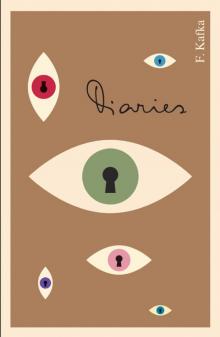 Diaries of Franz Kafka
Diaries of Franz Kafka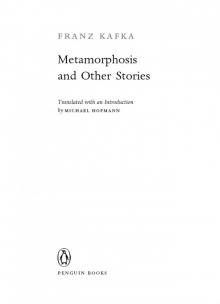 Metamorphosis and Other Stories
Metamorphosis and Other Stories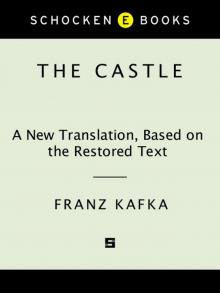 The Castle: A New Translation Based on the Restored Text
The Castle: A New Translation Based on the Restored Text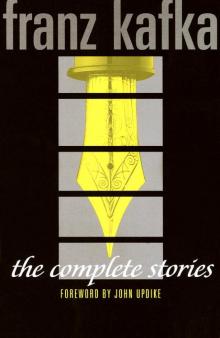 The Complete Stories
The Complete Stories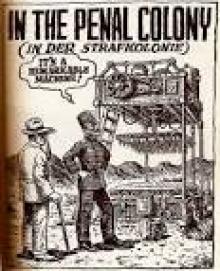 In the Penal Colony
In the Penal Colony The Trial
The Trial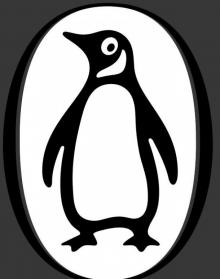 Amerika
Amerika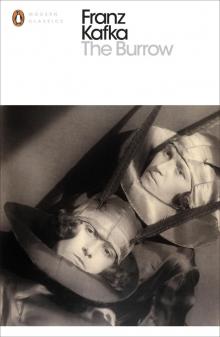 The Burrow: Posthumously Published Short Fiction
The Burrow: Posthumously Published Short Fiction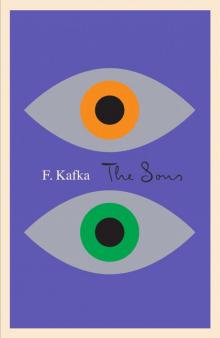 Sons
Sons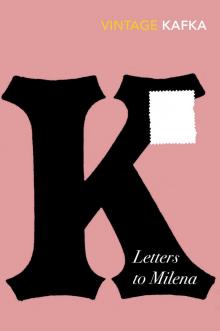 Letters to Milena
Letters to Milena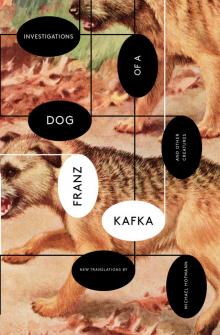 Investigations of a Dog: And Other Creatures
Investigations of a Dog: And Other Creatures Collected Stories
Collected Stories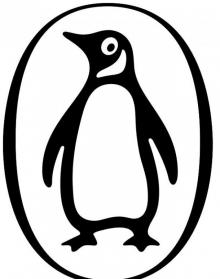 The Great Wall of China
The Great Wall of China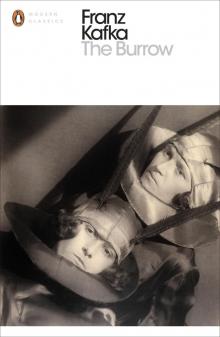 The Burrow
The Burrow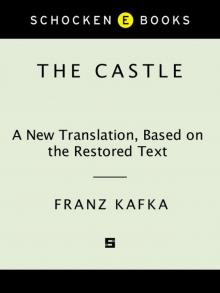 The Castle
The Castle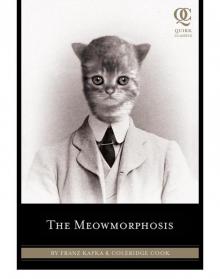 The Meowmorphosis
The Meowmorphosis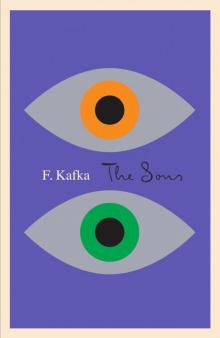 The Sons
The Sons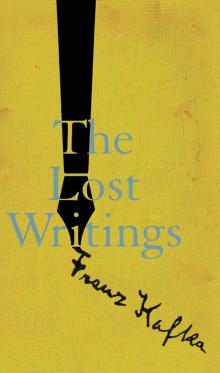 The Lost Writings
The Lost Writings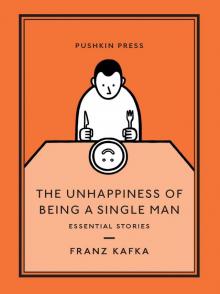 The Unhappiness of Being a Single Man
The Unhappiness of Being a Single Man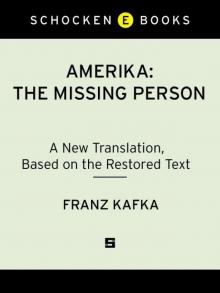 Amerika: The Missing Person: A New Translation, Based on the Restored Text
Amerika: The Missing Person: A New Translation, Based on the Restored Text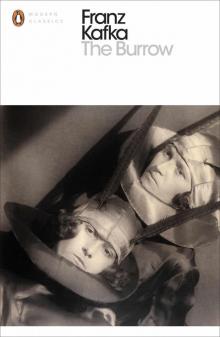 The Burrow: Posthumously Published Short Fiction (Penguin Modern Classics)
The Burrow: Posthumously Published Short Fiction (Penguin Modern Classics)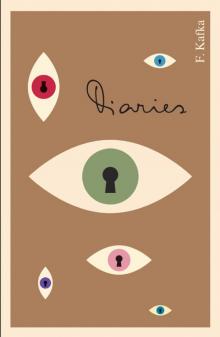 The Diaries of Franz Kafka
The Diaries of Franz Kafka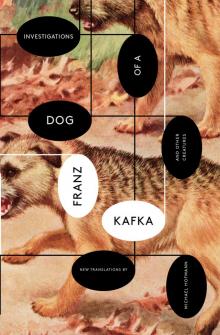 Investigations of a Dog
Investigations of a Dog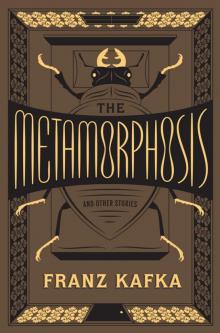 The Metamorphosis and Other Stories
The Metamorphosis and Other Stories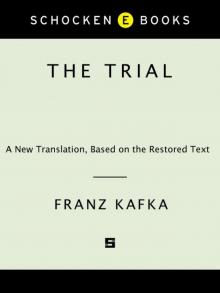 The Trial: A New Translation Based on the Restored Text
The Trial: A New Translation Based on the Restored Text